Aristotelian Metaphysics

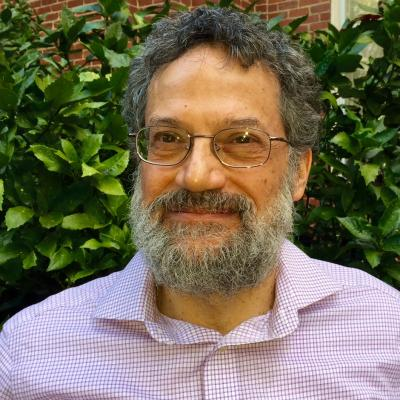
'The problem of the one and the many is intrinsic to any metaphysics for several reasons. For one, there is always going to be a question, (1) how the one discipline of metaphysics related to all the other disciplines. Then, there’s the question, (2) whether there is or is not a first principle of all things. Finally, there is the question (3) how there can be a metaphysical knowledge over and above the particular branches of knowledge, each of which has is own subject matter and would seem to know whatever can be known about it. What could metaphysics add to the knowledge that a particular discipline has?'
'It always surprises me how strongly felt the view that the Metaphysics is incoherent is. There are some who will immediately dismiss any claims to the contrary. Obviously, I can’t really deal with that. Aristotle famously distinguishes multiple ways in which terms are said, but when he himself uses the terms, he does not often specify in which way they are said. So, yes, the form/essence/actuality that is primary sensible ousia must be both universal and particular, but no ousia can be universal, and nothing can be both universal and particular. The issue is what the terms “universal” and “particular” mean in this context. '
'I think what contemporary metaphysics could learn from Aristotle is not new doctrines but classical problems. To do that, it is necessary to move beyond “what is his position?” to consider the way that Aristotle introduces these issues as well as the solutions he proposes.'

Edward C Halper is interested in the classical problems of metaphysics. Much of his work has been on ancient philosophy (he has just completed a three volume study of Aristotle's Metaphysics), but he also works on nineteenth century German philosophy (especially Hegel), medieval philosophy, and metaphysics. Here he discusses the problem of the one and the many, why there isn’t there just a simple and single formulation of the problem of the one and the many, what the central books aim to achieve, whether Aristotle disables all grounds for thinking that ousia is many, essence, form and actuality, whether the Metaphysics incoherent. examples of ousia, whether Aristotle treats One and Being as the same, whether Aristotle explicitly argues against his predecessors, Graham Priest and his views on Aristotle's arguments supporting the Principle of Non Contradiction, whether Aristotle's metaphysics is still valuable in our contemporary setting and finally Maimonides on the scope of divine and human self-knowledge.
3:16: What made you become a philosopher?
Edward C Halper: Sometime in middle school I decided that I wanted to do research, and I knew that that would most likely mean becoming a professor. In my mind, at that point, the sciences were at the forefront of research, and I was oriented towards them. When I entered college at The University of Chicago, my plan was to do research in Chemistry. I was fortunate to take a really wonderful first year chemistry course from Stuart Rice. He said, to know chemistry, you need to know physics. But classical physics is wrong, and quantum mechanics is more important for chemical reactions anyway. So, the entire first quarter was devoted to quantum mechanics; then we went on to thermodynamics and statistical thermodynamics. Rice called himself a “chemical physicist.” It was pretty clear from the course that chemistry is applied physics. So, during my second quarter, I started the physics sequence and began to think I would do physics.
That course was also very good, but at some point the professor, Norman Gelfand, said something like, “physics is just math with boundary conditions.” I thought about that, and by the third quarter of my first year---even though I was still taking chemistry and physics—I shifted my main focus to the (honors) mathematics sequence in analysis I had been taking all that year and thought I would do math. There are some really nice parts of analysis and some excellent books, but there are also some ugly parts where you can’t derive solutions. The abstract algebra that I did my second year was really beautiful. By the end of that year, I had mostly finished undergraduate math.
But I was becoming increasing puzzled about what mathematics is. I realized that I had no idea what a mathematical object is or why a proof was a proof. So, the third quarter of my second year I took a course in foundations of math from Saunders Mac Lane, who had discovered category theory. It was another terrific course that I got excited about. I was working on set theory, Hilbert, and Russell, but I got particularly interested in L. E. J. Brouwer and intuitionism. This latter is sometimes called “constructionism.” One issue was whether Cantor’s arguments about the different types of infinity were legitimate because their objects can’t be grasped or constructed. Brouwer is doing a mathematics that is based on Kant’s philosophy.
So, I needed to learn about Kant to appreciate the mathematics. By that point, I was studying the rationalist philosophers, and the following year I took my first course in Kant. Basically, I started taking philosophy courses to learn about the foundations of mathematics and worked my way back, gradually, to ancient philosophy. Since I was already familiar with the mathematics, it was clear to me that most of what is called foundations of mathematics is itself a part of mathematics: it presupposes what it purports to explain. I was interested in the metaphysical grounds.
My background in mathematics had a huge impact on my approach to philosophy. I think that logic is a branch of mathematics. There is nothing particularly sacrosanct about logic over other branches nor about one type of logic over another. Nor is there any particular reason that its 20th century version would be fit to capture arguments from other eras. There are deeper problems with using logic as a philosophical tool in the way people have tried to do, but I will leave that for another time.
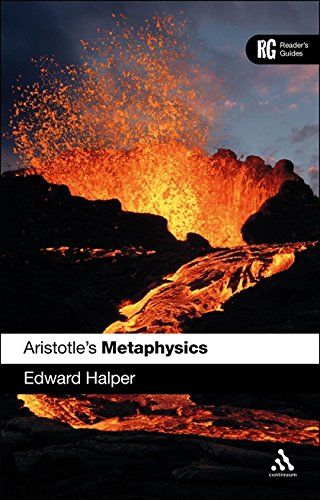
3:16: You’re the go-to guy regarding Aristotle’s metaphysics. You’ve embarked on a huge study of Aristotle’s Metaphysics. Your central argument is that the problem of the One and the Many is Aristotle’s most crucial and pervasive concern in the Metaphysics. So first, what is this issue and why does Aristotle think it of such huge importance? Is it because he thinks science isn’t possible without a solution to the problem or that if metaphysics is to count as a science it must be solved, or both? I take it that you don’t think a deflationary or minimalist reading of Aristotle in terms of linguistic or logical meaning is what Aristotle is doing? Is his metaphysics in fact a good way of understanding his scientific method as well as his metaphysical method?
ECH: The problem of the one and the many is intrinsic to any metaphysics for several reasons. For one, there is always going to be a question, (1) how the one discipline of metaphysics related to all the other disciplines. Then, there’s the question, (2) whether there is or is not a first principle of all things. Finally, there is the question (3) how there can be a metaphysical knowledge over and above the particular branches of knowledge, each of which has is own subject matter and would seem to know whatever can be known about it. What could metaphysics add to the knowledge that a particular discipline has?
What is really neat is that Plato and Parmenides realized all this, and each propounds a metaphysics based on the one. That is a simple and elegant answer to all three questions, especially in Parmenides’ case where the one is the only subject matter that can be known and thus the only principle and there are no other particular branches of knowledge. But the solution undermines the possibility of knowledge of sensible particulars, and it seems clear that people who have mastered an art (such as, shipbuilding or medicine) have such knowledge. So, Aristotle needs to give a very different answer.
The problem with deflationary or minimalist readings is that, however consistent they may be with the texts, they don’t resolve the metaphysical issues. Maybe that’s ok if all you care about is either coming up with an interpretation that can’t be defeated or dealing with problems in language, etc. It’s not much good if you care about metaphysical problems. The methods at work in the particular sciences differ from the method of the Metaphysics, though book Iota—the least studied book of the Metaphysics—is a pretty good guide to his philosophy of (particular) science.
Ultimately, the sciences are rooted in metaphysics because each deals with an ousia or with what can be treated as an ousia. It is necessary to understand what an ousia is in order to appreciate a particular science, and it is necessary to identify some ousia in which the objects of a particular science somehow inhere. What we can learn from book Iota is that, although pros hen is central to metaphysics, analogy is far more important in the particular sciences. (Pros hen is often translated as “focal meaning,” but Aristotle actually uses it as an ontological device, rather than a linguistic one.)
3:16: Why isn’t there just a simple and single formulation of the problem of the one and the many in Aristotle? Is this why you see him organising around the questions he discusses rather than round the doctrine?
ECH: There is a simple and single formulation (and solution) in Parmenides: is all one? The solution is that one is the principle and subject matter of metaphysics. Plato follows him in making a form one and, thereby, both the object of knowledge and the principle of sensibles. The trick to appreciating Plato and Parmenides is that they are making a point of identifying what Aristotle will later separate.
So, in his hands the one and many problem becomes first: (a) are the principles one or many? and (b) are there one or many subject matters? When you appreciate that there are many types of subjects and many types of principles, the problem becomes much more complex. In the first volume of One and Many I show how all but one of the aporiai derive from the claim that the principle is one. Sometimes, Aristotle translates, as it were, from unity language to his more refined philosophical vocabulary. Hence, all the aporiai of Metaphysics B are one/many problems. The exception is the problem about potentiality and actuality.
I use another chapter of the first volume of One and Many to explain why the problem is central to any metaphysics. Oddly, one reviewer claimed I never make the problem clear. I guess he wanted to find a one sentence summary. The issue is hard to think about especially if you are convinced that the Metaphysics is not really about metaphysics.
3:16: What do the central books aim to determine about being, and why do they assume the primary being to be ousia?
ECH: The central books aim to delineate primary being or, rather, primary sensible being. That it is ousia is argued, indirectly, in book Γ. But there, and going into the central books, ousia is just the primary nature of being, that is, beingness—whatever that is. In other words, the term is a placeholder. The central books determine what its nature must be. It turns out that primary ousia is form (or, more precisely, formal substrate), essence, actuality, and truth—all these are identical in their primary instances. You can get a handle on what these are by considering, what is it about any individual composite ousia that makes it be an ousia?
To be an ousia something must it be a substrate for attributes, it must be indivisible in respect of its definition, it must be a function in which the entirely of the material constituents engage in together, and its component parts must combine together. Primary ousia is what makes the composite be an ousia in each of these ways. (The universal is indivisible in definition, but it is not primary in the other ways.) In the course of this determination, it becomes clear that the principles of sensibles require principles of a different sort, non-sensible beings. The task of determining what they are belongs to Metaphysics K-N.
3:16: How does Aristotle disable all grounds for thinking that ousia is many, contrary to all appearances?
ECH: There are many different dogs and many human beings. Each is an individual ousia, and dog and human being are each a single species among the many species of ousiai. So, it is clear that ousia is many in multiple ways. On the other hand, each individual ousia is one. The metaphysical problem is to find the way in which each ousia is one. Of course, it is an instance of a kind, a dog, say. But that only identifies it. It is one in species, but the species is not a primary ousia because it is shared by many individuals and it does not make an individual what it is.
Instead of saying that Aristotle disables grounds for ousia’s being many, I would say that he discovers a ground for saying that, despite all the ways in which ousia is many, there is also a way in which it is one—as indeed there must be if it is to be knowable and to be. The nature of the ousia is what makes it one. This nature is the characteristic function or, more precisely, the capacity for this function. It is because all the parts can function together on their own that they constitute a single nature, and the nature is what this function is—what it is that these parts characteristically do.
Even at the end of H.6 when it becomes clear how, despite its having many components, an ousia can be one, Aristotle says only that it is one “in a way.” There is another way in which it is not one, and this latter way is important for the Physics because only if it is a plurality can it change. In fact, a sensible, sublunar ousia needs to be able to change to come to be. So, plurality is also essential for an ousia.
3:16: How do essence, form and actuality solve the problem?
ECH: Again, the problem is to find primary being. Since this is ousia, the problem becomes finding primary ousia. First, Aristotle considers ousia as a category. This type of ousia, in turn, is said in many ways: substrate, essence, genus and universal. Aristotle looks to find what is primary in each of these way. Primary substrate is form. Primary essence is the essence of an instance of the category of ousia rather than the essence of any of its accidents or its material parts or formal parts. All these latter have their own essences, but these essences each include the essence of ousia. Genus and universal cannot be primary because they are characters that belong to individual ousiai and, in the case of some universals, to all beings: they depend on the individuals to which they belong. It seems too obvious to say, but it is not always appreciated that all the ways in which things are said to be ousiai do really signify ousiai. Aristotle’s concern is to find which of them is primary.
In Z 6, Aristotle argues that the form (of an ousia) is its essence. Because the form is the cause of unity to the matter (Z 17), and because this cause must be an actuality (H 6), the form must also be actuality. So there is a convergence here among candidates for ousia in the sense of the category. What makes something be an individual ousia is its form/essence/actuality, all of which are same. This entity is primary ousia even though it does not exist without matter. Only genus and universal are set aside. They are secondary ousiai.
Besides categorial being, there are two other per se ways in which being is said: actuality and truth. What is primary among instances of categorial ousia is, as I said, form/essence/actuality. This form is also primary in the other two ways of being, that is, actuality and truth. So, there is this striking convergence among ways of being (in addition to the convergence among ways of being ousia): the same thing is primary in all the ways of being. In the Metaphysics “primary” is what Aristotle considers when there is no genus or species. If being were a proper genus, he would look for the essential generic nature that each instance shares and, then, the primary species in the genus. Since being is not a proper genus—though Aristotle sometimes treats it as if it were—he needs to find what is primary and show how other beings depend on it.
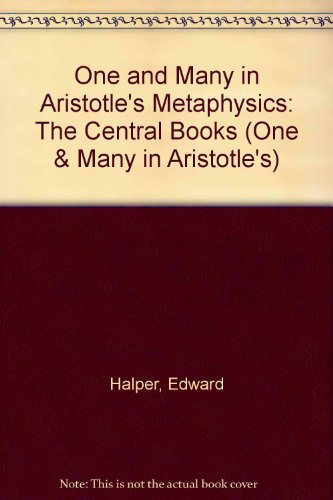
3:16: Many scholars think that his Metaphysics is a mish mash of different arguments about different things, that it lacks anything like the coherent thru-put you argue it has. How do you deal with pushback from interpretations that point to what look like several contradictions in Aristotle - such as when he says ousia can’t be universal, is essence, and essence is universal and ousia can’t be individual – which seem to militate against seeing him as having a single doctrine to argue for, or those who liken ousia to a Socratic form?
ECH: It always surprises me how strongly felt the view that the Metaphysics is incoherent is. There are some who will immediately dismiss any claims to the contrary. Obviously, I can’t really deal with that. Aristotle famously distinguishes multiple ways in which terms are said, but when he himself uses the terms, he does not often specify in which way they are said. So, yes, the form/essence/actuality that is primary sensible ousia must be both universal and particular, but no ousia can be universal, and nothing can be both universal and particular. The issue is what the terms “universal” and “particular” mean in this context.
I argue that form is universal in the sense that it is one in formula and that it is individual in the sense that insofar as it is separate from matter, that is, “separate in formula,” it is numerically one. It is pretty clear that these are not incompatible. The problem is showing that a form can or, rather, must be both. This is not only consistent with the text of the Metaphysics; but the text seems to be structured to show that the form is both, and also this is the only way I can see for the text to be coherent. I think that that’s pretty strong evidence for this interpretation—though that never impresses those dedicated to incoherence. Aristotle’s forms are immanent rather than separate. In this respect he seems to be like Socrates rather than Plato. But Aristotle’s forms of sensibles are actualities—that is to say, they are the functioning of a matter. So, for the most part they can’t exist apart from matter. Socratic and Platonic forms are usually structures rather than functions.
3:16: Could you give some examples to illustrate what Aristotle takes ousia to be – in particular how form, matter and function helps us understand his idea and why the sensible ousia requires a plurality of parts and instances?
ECH: Any plant or animal is an ousia. There are two striking features that they all have: (1) organs that function together and (2) reproduction. Both are based on a simple idea, namely, that a functioning requires nourishment to sustain itself because the material parts involved in the functioning wear down through the functioning. That means that (1) you need an organ to take things from outside the ousia and convert them (that is, what is unlike the plant or animal) into something like it that can be incorporated into it. Then, the organism needs to distribute the like material and excrete the waste. Plants are simple in that they send out roots and nutrition comes to them. Animals need organs of movement to get their food and, of course, organs of perception to distinguish food from non-food.
In every case, an ousia has organs that function together for one purpose: to sustain the ousia, that is, to keep the ousia functioning. In this sense, an ousia is its own end: (a) its organs function so that they can keep functioning, but also (b) the functioning itself is not for the sake of anything else, but its own continued functioning. Note that (a) introduces motions into the picture. A dog needs to run after its prey or it stops and waits for it. But these motions serve the dog’s end, its continuing to function as a dog. In contrast, (b) is just the latter. Whatever a plant or animal does to sustain itself, eventually, its organs wear out and it dies. So, there needs to be another mode of sustaining itself, namely, (2) reproduction, and, of course, there need to be organs for this as well.
Aristotle does not think that an organism would reproduce without a cause outside itself, that is, without seeking to imitate something eternal. There are eternal ousiai as well: the heavenly spheres and the unmoved movers. The former are material but eternal, Aristotle thinks. So, they do not seem to have multiple organs. However, since their motions would eventually wear down and cease, they still need a cause to sustain their motions.
3:16: Why would it be a mistake to think that Aristotle treats One and Being as the same?
ECH: There are many passages where Aristotle does treat them as virtually the same. They are clearly equally universal and whatever is is also one. However, the being of something is its essential nature, whereas its unity is its indivisibility, including its indivisibility in respect of its essential nature. So when we ask, what is? the answer is always a something. That is why the primary being is ousia.
When Aristotle says this in Metaphysics Γ, he uses ousia to refer to something like the essential nature of being, whatever that would turn out to be. Only later is it clear that that essential nature is a group of beings, beings in the categorial genus of ousia, and that these latter in turn have their own primary ousia, form, as we have seen. Then, those forms of sensible ousiai are shown to depend on non-sensible ousiai. In contrast, one is an analogy. There is a one in each genus, but there is no one itself. That is to say, the essential nature of one is not to be some particular one or some particular group of ones. To be one is, he says in Metaphysics Iota, “closer to a name.” It is to stand in some relation to a genus, in something of the way in which “principle” or “element” refers to a relation, rather than a particular thing.
In short, what it is to be is some being, where as what it is to be one is not some being. Plato thinks that metaphysics is fundamentally about the one because that is what is common to all, because one is a kind of thing, and because the one makes things be one. Aristotle says that it must be about being because the highest being is self-subsistent, whereas the highest one is not.
3:16: How far is Aristotle explicitly arguing against his predecessors in the Metaphysics, and Plato in particular?
ECH: The Neoplatonists were convinced that Plato and Aristotle were saying the same thing because both advanced form as the first principle. That sounds bizarre because Aristotle spends so much of the Metaphysics arguing against Plato, but it is not. Aristotle needs to distinguish himself from Plato because they are so close, especially compared with other Greek philosophers. At the same time he finds a place for Plato, as it were. Plato’s forms are universals, he says. That gives them a legitimacy that they might not seem to have.
He makes comparable moves with other Greek philosophers. He argues against the claims made by some that water, air, or fire were the first principles, but he accepts that each of these is a principle or, rather, an element. My point is that he is arguing against his predecessors but, at the same time, extracting from them what they got right and incorporating it. There is something true in what they say, but their error lies in their making primary what is not primary.
3:16: Graham Priest has said that Aristotle’s arguments for the principle of non-contradiction are pretty weak – which is quite a claim given that you argue that if this principle doesn’t hold then Aristotle can’t justify having essences and might even stop the possibility of metaphysics. So what are Aristotle’s reasons for the PNC, and is Priest right not to feel impressed by them - and how does he deal with Heraclitus’s claim that everything is constantly changing and so not subject to the PNC?
ECH: Aristotle has an extensive discussion of the PNC that ostensibly justifies the principle, but he also says that there is no way to justify the PNC without begging the question. So which is it? I don’t think that there is ever any doubt about the PNC. The point of the discussion lies in showing that if something has an essential nature, it cannot be subject to contradiction, something Aristotle says twice in the course of his discussion. If the essential nature were subject to contradiction, it could not signify one thing or be known. Since it is assumed that there is knowledge, there must be something not subject to contradiction, that is, something with an essential nature. Then, the question is, of what sorts of things is there knowledge, that is, what sorts of things are not subject to contradiction? In other words, the real issue in the discussion is not the PNC itself, but how far the principle extends.
Plato had claimed that only forms are not contradictory, and the Republic assumes that the soul and the state cannot be contradictory—and that these latter would be contradictory if they did not have distinct parts. Aristotle argues that each being is subject to the PNC, that is, that each being has its own essential nature. This discussion in Metaphysics Γ paves the way for the central books to look for which essential natures are primary. So, Priest is right not to be impressed with Aristotle’s arguments. But he goes in a direction opposite to Aristotle’s. He rejects the PNC because it can’t be proven. I suppose that he also rejects essential natures, as most people do these days.
Aristotle doesn’t think the PNC can be properly proven, but he thinks it can’t be false and that to deny it requires rejecting essential natures as well. Heraclitus is a very interesting figure because the constant changes that he points to are regular and have a logos. So, even when he is denying that anything can be known, he is instructing us on how to know it. That is a contradiction, of course; and Heraclitus is proud of it. Heraclitus’s idea that change is regular is very important for Aristotle, especially in the Physics.
3:16: Do you find Aristotle’s concept of metaphysics appealing – does it survive the challenges of the early twentieth century, and how does it compare with the contemporary metaphysics revived by Lewis and Kripke?
ECH: What is really interesting about Aristotle’s metaphysics and what makes the Metaphysics worth studying carefully is that Aristotle recognizes the problem of metaphysics. Readers who propose deflationary readings miss this point. I don’t think that Aristotle is compatible with modern science or with the metaphysics that is implicit in modern science. (I wrote about this in article that’s just come out in the on-line journal Thaumazein.) Once you see why, you can also see a real metaphysical difficulty with modern science—and another with Aristotle.
For the most part, contemporary metaphysics is based on logic: We think we have indisputable logical truths, and we ask, what must the world be like for them to be true? Or in the cases of Kripke and Lewis, we have these modal operators that yield intuitive truths. They ask, what must the world or, rather, all possible worlds be like for them to be true or, alternatively, in which worlds are they true and which not? Answering can be a fun game, but it is hard to take it too seriously. One problem is that the discussion does not consider what sorts of entities logic truths are. Another problem is whether ontology depends on logic or logic on ontology—or neither.
It is clear that in the Metaphysics logical truths (like PNC) depend upon essential natures, that is, on what is. These questions, (a) what grounds logical truths? and (b) what is prior, logical or metaphysical truth? are just fascinating—they are the sorts of questions that a careful study of Aristotle’s Metaphysics allows or, better, forces, us to ask.
3:16: You’ve given us an outline of Aristotle’s metaphysics and of course much philosophy up until the modern period was concerned with sorting out issues it raised. You’ve considered Maimonides on the scope of divine and human self-knowledge in this way. So what was the issue he was trying to sort out, can you sketch his solution and say how you assess it?
ECH: Aristotle says that to know something is to grasp its first cause. As I was saying before, there are two first causes, something’s own essential nature, and the ultimate first cause, the unmoved movers. Aristotle argues for the existence of the latter, but we can’t know their natures. If, then, knowing something requires that we grasp its ultimate first cause but that ultimate first cause is unknowable, we cannot have any knowledge. That’s the problem.
Aristotle’s solution is to separate something’s essential nature from the ultimate first cause. The nature of this latter first cause does not determine or cause the natures of human beings, dogs, or anything else. Rather, it is responsible, as a final cause, for sustaining these and other species of ousiai. Again, human nature is not a consequence of the nature of an unmoved mover. The latter causes only the eternity of the human species (as Aristotle argues). So, sensible ousiai can be known through their own natures without knowing the natures of unmoved movers. Knowing that their species are eternal requires knowing only that there be eternal unmoved movers, not they these ultimate first causes have any particular nature.
This solution is not open to Maimonides or other medieval thinkers because they identify the ultimate first cause as God. They argue that God is the efficient, formal, and final cause of everything and that God created the matter of the universe. It follows that human nature is directly caused by God’s nature and that to know it and any other nature, we must know what God is. Since we cannot know God’s nature, we cannot know anything. Maimonides goes a step further because he sees a religious obligation to know God’s nature, but also recognizes that that is impossible. The only thing we can know of God, he argues, is his actions.
I think that this is a central issue in the Guide of the Perplexed, indeed, possibly, the central issue. This work begins by talking about human nature as a potential to know, it talks about all of nature and the cosmos and about religious law before it ends by describing human beings with knowledge coming into the divine presence. It seems that we can know something, namely, ourselves, by understanding our place in the (divinely created) physical world and understanding how religious laws are structured to promote the fulfillment of human nature—both divine actions. This is a really neat solution, whether or not it is right. Obviously, the physics is not correct, but the idea of coming to know ourselves by grasping our relation to cosmos seems very contemporary: you can’t actualize your potential for knowledge without grasping how the world works, and it is possible to understand this relationship without knowing the nature of the first cause. What you come to know is human nature.
I can’t argue this here, but I will just observe that the issue Aristotle raises was important for philosophers from the medieval period and remained important, even without Aristotle’s particular metaphysical notions, long after this as well as today. That illustrates once again why it is worth studying the Metaphysics seriously.
3:16: As a take home, could you summarise for us what you think are the most important and most interesting things about the Metaphysics and whether you think we should still attend to this as a body of live philosophical issues or whether modern philosophical thinking – and modern science and logic have completely superseded it and left its interest as being purely historical?
ECH: Strawson says in Individuals that metaphysics is about cataloguing the furniture of the universe. The claim expresses the deflated notion of metaphysics that was prevalent in the 1950’s and 60’s. Since that time, contemporary metaphysics has taken off in multiple directions, sometimes rediscovering issues that Aristotle and other Greek thinkers wrestled with.
What metaphysics still stands to learn from Aristotle is first concern for itself: how could there be a metaphysics and what sort of discipline is it? Even people who consider themselves metaphysicians often see the discipline as concerned with a set of problems that don’t fit anywhere else, rather than problems that are intrinsic to a discipline. The question whether metaphysics or, indeed, any other discipline has an integrity as a discipline deserves reflection. There is a reluctance to tie down disciplines because crossing seeming disciplinary boundaries has been productive, but this blurring is itself a metaphysical position.
Something else metaphysics stands to learn from Aristotle is: what kind of beings are principles? The term “principle” seems to have acquired the meaning of “fundamental belief,” and it seems to have become a matter of personal conviction. The question of what kind of thing a principle is or could be is fundamental to Aristotle’s metaphysics and should be fundamental for all metaphysics. In sum, I think what contemporary metaphysics could learn from Aristotle is not new doctrines but classical problems. To do that, it is necessary to move beyond “what is his position?” to consider the way that Aristotle introduces these issues as well as the solutions he proposes.
3:16: And for the readers here at 3:16 are there five books other than your own that you can recommend that will take us further into your philosophical world?
ECH: There is an enormous literature on Aristotle, but the bulk of it is more concerned with arguing for an interpretation than reflecting on philosophical problems.

One book that is more concerned with philosophical problems, problems that are broader that Aristotle, is R.G. Collingwood’s The Idea of Nature. I read it as a graduate student, and I have often recommended it to students.
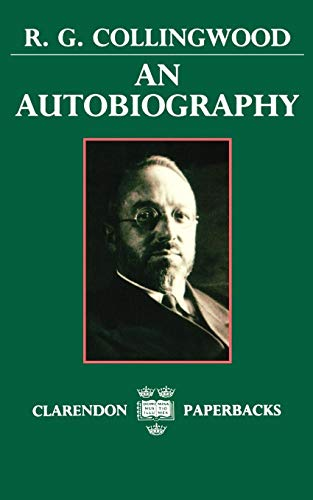
In his Autobiography, Collingwood talks about applying the method of looking for problems to archaeology. It is the same sort of method he applies elsewhere.
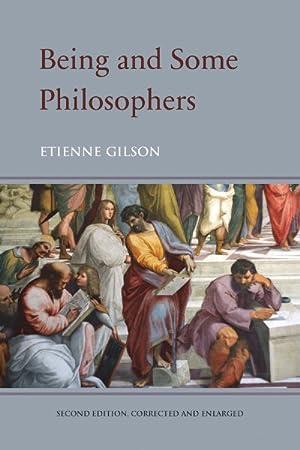
Another book that influenced my development is Etienne Gilson’s Being and Some Philosophers. Near the beginning, Gilson considers the difference between a metaphysics based on the one and a metaphysics of being. He is concerned with distinguishing the Neoplatonists from Aquinas, and he has been criticized for downplaying the Neoplatonic influence on Aquinas, but the actual question he raises is one that I’ve spent a lot of time thinking about.
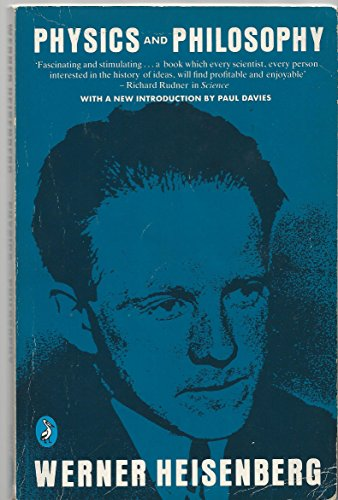
Another book that I have found helpful in thinking about science is Heisenberg’s Physics and Philosophy. Philosophers tend to think about science in terms of theories. Heisenberg presents it as problems, often on-going problems and, especially at the end, unresolved problems. Although Aristotle himself does not use a dialectical method (except, arguably, in making definitions in the Topics), he often wrestles with Plato, for whom the dialectical method is nearly inseparable from the forms. Unfortunately, most discussions of Plato’s texts are so ossified that the dialectic is hard to see. Ditto with Hegel, Rousseau, and other dialecticians.

I suggest that nearly any work of Kierkegaard is a good place to learn to appreciate the method (e.g., Either/Or, Fear and Trembling, Concluding Unscientific Postscript). Instead of trying to find what he is saying—which I do not find nearly as interesting as the work of some others—follow the flow.

ABOUT THE INTERVIEWER
Richard Marshall is biding his time.
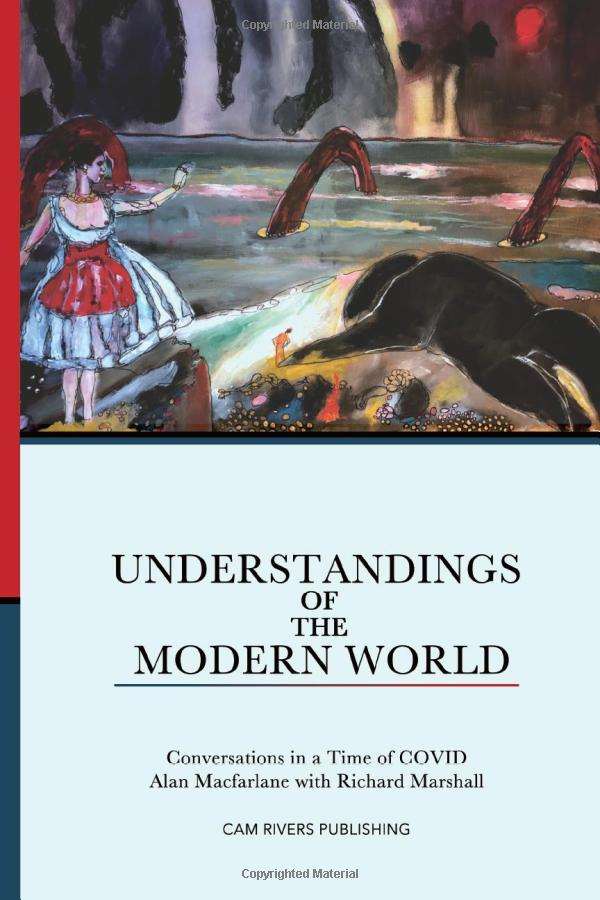
Buy his third book here, his second book here or his first book here to keep him biding!
End Time series: the themes
Huw Price's Flickering Shadows series.
Steven DeLay's Finding meaning series
Josef Mitterer's The Beyond of Philosophy serialised